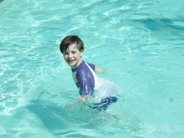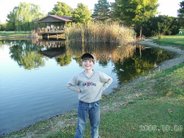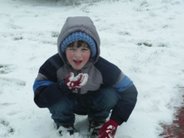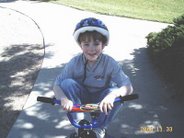Written by Neil Simmons
Autism is a complex developmental disorder that severely impairs a child's ability to communicate and interact with other people. Although the precise cause of autism is unclear, a plethora of theories have been suggested. One theory suggests a genetic link, while another holds vaccines containing mercury as the culprit. Parents of autistic children are now seeking legal recourse on whether mercury in vaccines caused autism in their children.
Thimerosal is a preservative in vaccines that contains 49 percent ethyl mercury. Mercury is a known neurotoxin or in other words is a chemical that causes untold harm to the brain, especially a child's developing brain. Scientists thought that autism might be one such toxic manifestation of mercury in vaccines. In 2002, thimerosal was phased out of childhood immunizations mainly because the Public Health Service and the American Academy of Pediatrics advocated it.
However it is possible that the mercury in the vaccines administered to children before 2002 did play a role in the development of autism. In the present case Cedillo v. Secretary of Health and Human Services, the United States Court of Federal Claims in Washington is all set to hear data that vaccines containing mercury are a causal factor in autism.
The case will be followed very keenly because there are another 4,800 such cases pending before the court.
Autism-vaccine links emerged in the late 1990s when the State of California released a report suggesting a 273 percent increase in the number of persons with autism between 1987 and 1998, the New York Times reports. The cases of autism are definitely on the rise in American children, whether it is due to improved diagnosis or due to other factors remains unclear.
In 2004, the Institute of Medicine examined data on links between vaccines containing mercury and the incidence of autism and found no evidence linking thimerosal to autism. The Institute of Medicine's panel based its conclusions on five large studies conducted in United States, Denmark, Sweden and Britain in 2001. These studies examined thousands of children, but failed to find any link between autism and thimerosal.
The IOM report said it was an undisputed fact that high doses of mercury did cause substantial neurological damage. However no symptoms resembled that of autism, the report suggested. It added that genetics was the main causative factor as many studies had noted that autism started prenatally.
A review by the Environmental Working Group suggested that autistic children had a biomarker that rendered them susceptible to mercury and heightened their risk of developing the neurological disorder. The report cited a study by Dr. Jill James of the University of Arkansas School of Medicine, which found that children with regressive autism had high levels of oxidative stress, which made it hard for their bodies to get rid of mercury.
The study cited the following factors as well (as available on www.ewg.com)
* The indisputable toxicity of mercury to the brain, particularly the developing brain (Limke 2004, Clarkson 2002, Mahaffey 1999).
* Peer-reviewed reports showing that autistic children are extremely poor at ridding their bodies of mercury as measured by mercury hair levels (Holmes 2003).
* The recent finding that autism-like symptoms are triggered by thimerosal in mice with a predisposition to autoimmunity (Hornig 2004).
* The fact that the prevalence of autism in boys is four times that in girls, and that boys have elevated incidence of damage from mercury exposure in epidemiologic studies (Vahter 2002).
The study said that it did not find a credible link between mercury in vaccines and autism, but there was sufficient evident to suggest mercury played some role.
This theory was reinforced by a study in 2006 which showed that autism cases declined when mercury was banned from vaccines. Using data from CDC’s Vaccine Adverse Event Reporting System (VAERS) and the California Department of Developmental Services (CDDS), lead authors David A. Geier, B.A. and Mark R. Geier, M.D., Ph.D found that autism rates hit a high of 800 in May 2003, but dropped to 620 in 2006.
The authors suggested that the 22 percent decline in autism cases was mainly due to the restriction of mercury in vaccines.
The U.S. Centers for Disease Control and Prevention estimates that one in every 150 children has autism and that 560,000 people aged till 21 in the United States have autism.
Experts have tried to dispute the vaccine-autism link by suggesting that children are naturally distressed by shots and that this is the age when autism is first diagnosed leading parents to believe that the vaccines cause it.
It will be interesting to see what the U.S. Court of Federal Claims rules in the autism-vaccine case pending before it. This ruling might set off a legal time-bomb if it decides that mercury in vaccines is indeed responsible for autism. However a battery of scientists is also ready to give the flip side of the opinion.
The case is expected to last for three weeks.
Shankar Vedantam, Washington Post
For more than a decade, families across the country have been warring with the medical establishment over their claims that routine childhood vaccines are responsible for the nation's apparent epidemic of autism. In an extraordinary proceeding that begins today, the battle will move from the ivory tower to the courts.
Nearly 5,000 families will seek to convince a special "vaccine court" in Washington that the vaccines can cause healthy and outgoing children to withdraw into uncommunicative, autistic shells -- even though a large body of evidence and expert opinion has found no link. The court has never heard a case of such magnitude.
The shift from laboratory to courtroom means the outcome will hinge not on scientific standards of evidence but on a legal standard of plausibility -- what one lawyer for the families called "50 percent and a feather." That may make it easier for the plaintiffs to sway the panel of three "special masters," which is why the decision could not only change the lives of thousands of American families but also have a profound effect on the decisions of parents around the world about whether to vaccinate their children.
A victory by the plaintiffs, public health officials say, could increase the number of children who are not given vaccines and fall sick or die from the diseases they prevent.
Economics and politics intersect in the case with questions of health and the deepening mystery of soaring autism rates. Advocates of the vaccine theory have argued that the increase in cases was triggered by a mercury-based preservative in vaccines that, they say, is toxic to children's brains.
Under pressure from the advocates and to keep the issue from disrupting vaccination programs, U.S. officials began phasing out the additive, thimerosal, in children's vaccines around 1999, while maintaining that there was no hard evidence that it was dangerous. But thimerosal is still used in vaccines across much of the developing world. If the vaccine court decides that the preservative caused autism, parents of children in poor countries are likely to protest its inclusion, but removing it would make vaccines much more expensive and potentially put them out of reach for many.
Gary Golkiewicz, chief special master in the U.S. Court of Federal Claims, where the case is to be heard, said he is aware of the larger ramifications. But the court's job, he said, is only to focus on whether plaintiffs show a plausible link between vaccines and autism.
About 20 experts are expected to testify in the case, which will involve a staggering amount of complicated epidemiology and biochemistry. Golkiewicz said a ruling could be a year off.
Experts for the government will argue that a range of epidemiological studies found no link between vaccines and autism, as the prestigious Institute of Medicine concluded in a 2004 report.
Congress set up the vaccine court to provide compensation for individuals harmed by side effects, because lawsuits were threatening to put vaccinemakers out of business.
The law requires people claiming they were harmed by a vaccine to bring the case in the special court first, but if they lose, they can still file suit in civil courts.
Scientific advocates for the vaccine-autism theory, such as the father-and-son team of Mark and David Geier of Silver Spring, Md., say fears about damaging public health programs have prompted scientists and the government to hide evidence of a problem. Many of the families believe that the medical establishment and the U.S. Centers for Disease Control and Prevention have conspired in a massive coverup.
Subscribe to:
Post Comments (Atom)


























 This website is part of the autism-assembly, this is a coalition of
members of the autistic community who share the common goal of seeking
acceptance for those on the autistic spectrum, who aim to educate about
autism, and who are not seeking a cure for autism. This is part of the
global autism rights movement.
This website is part of the autism-assembly, this is a coalition of
members of the autistic community who share the common goal of seeking
acceptance for those on the autistic spectrum, who aim to educate about
autism, and who are not seeking a cure for autism. This is part of the
global autism rights movement.



No comments:
Post a Comment